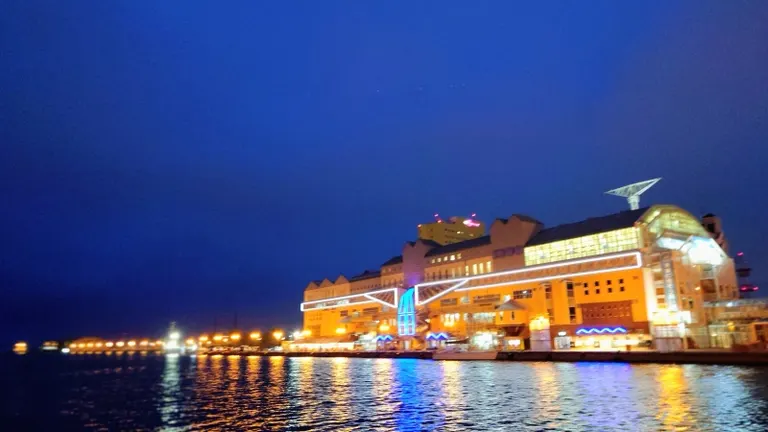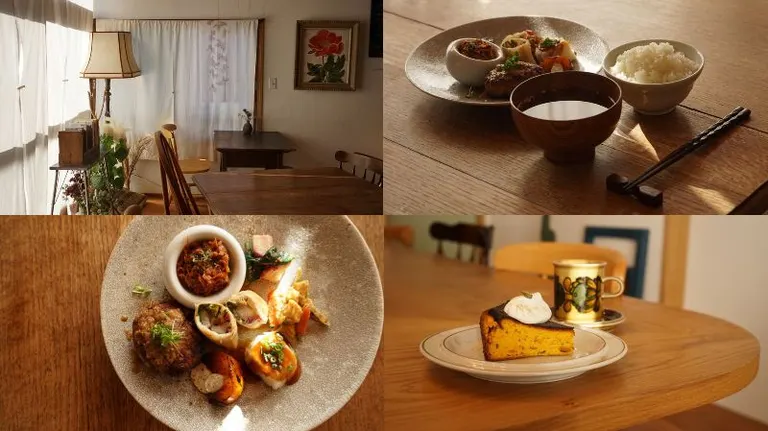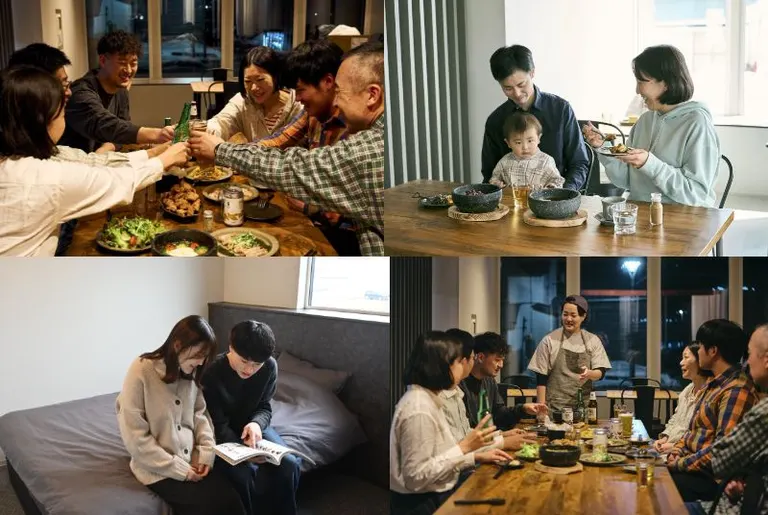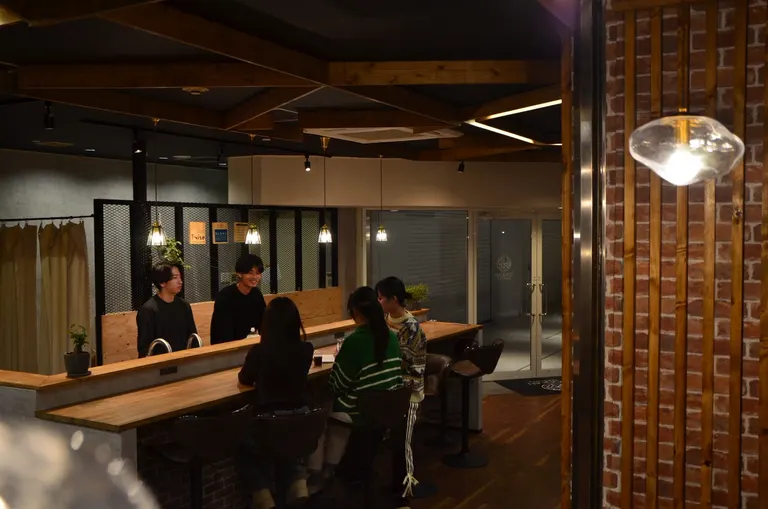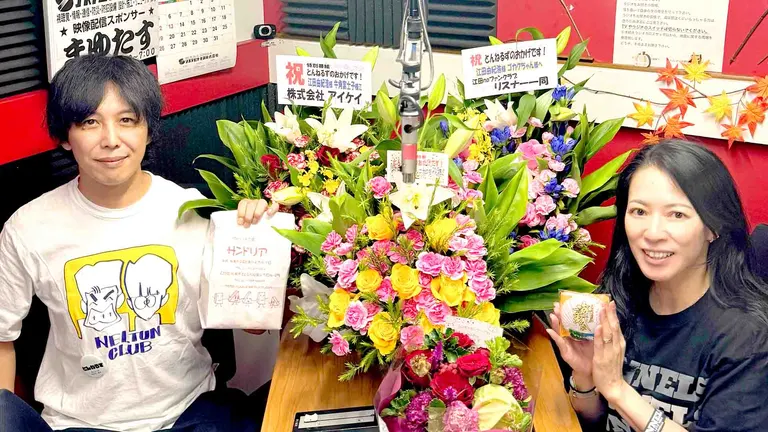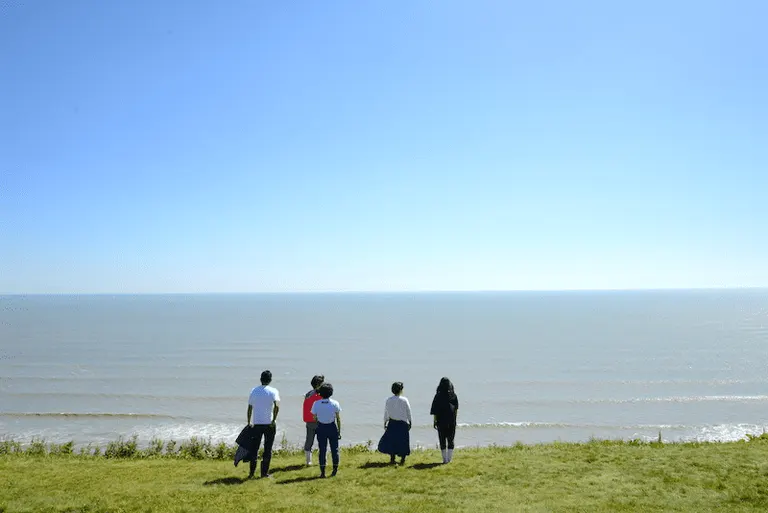
ARTICLES
I want to support the challenges of young immigrants, just like I was once. This is the new ambition of a hostel owner who serves as a base for young people.
Hahaha Hostel, a guesthouse set up by former local revitalization volunteer Komatsu Teru, has become an important base where people hoping to move to the town can stay for a long period of time and experience life and work in the town. This spring, they also started operating the employment promotion portal site "Tsutsuuraura." We will introduce the activities of Urahoro Town and Mr. Komatsu, which is gradually increasing the number of people moving there, especially young people, and is beginning to attract attention from various local governments in Hokkaido.
Our connection with Urahoro was forged while learning about town development.
Forestry, fisheries, dairy farming, and field crops. Urahoro Town, home to about 5,000 people, is a town rich in industry. Komatsu moved to Urahoro Town immediately after graduating from a university in his hometown of Tokushima. What prompted him to come to this town from faraway Shikoku?
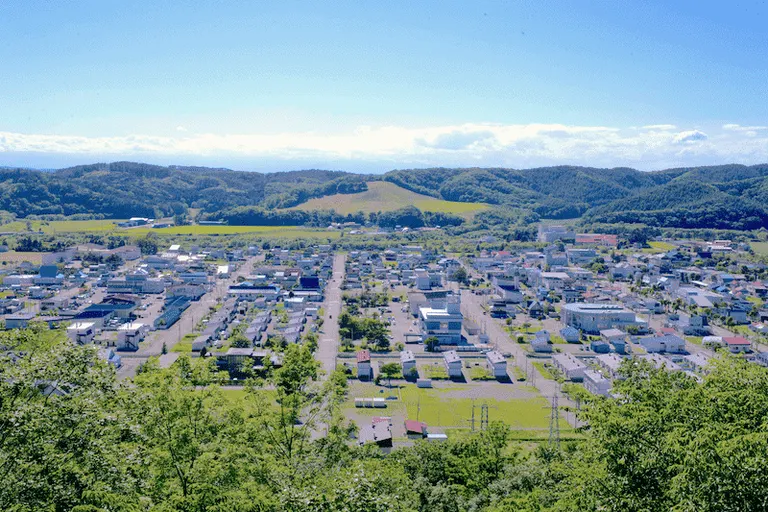
Streets of Urahoro Town
"When I was choosing a university in my third year of high school, I vaguely wanted to become a civil servant, so I thought it would be better for me to learn about town development, and so I went on to a department where I could study that subject. During my time at university, I also did an internship at a company involved in human resource development and town development. During that time, the company I was interning with was running a local human resource development project in Tokushima for the next generation, and Urahoro showed great interest in it. The new project began with the suggestion that we create a pathway for students to get involved in town development while studying in Urahoro, and I ended up visiting the area." In Urahora, Komatsu supported the students in preparing for the fieldwork, where they would gather, sleep and think up projects to revitalize the town, and arranged meals.
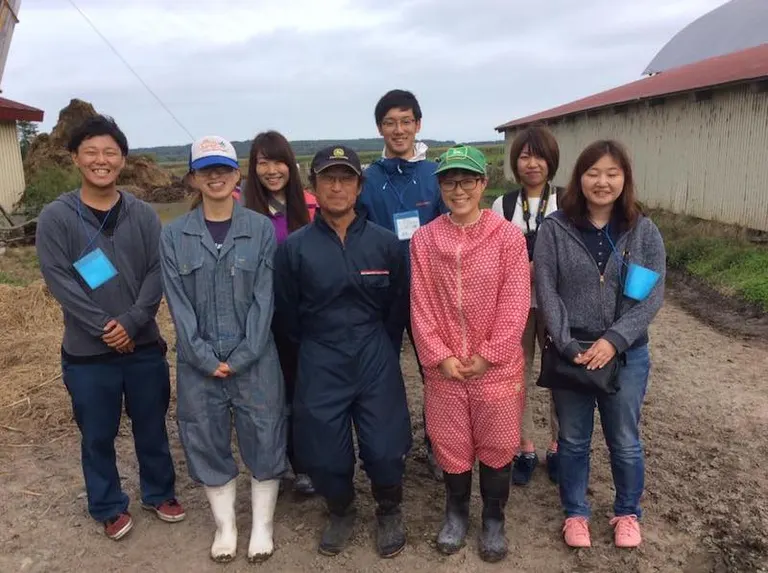
Komatsu as a student (fourth from the right)
"I first visited Urahoro in September of my third year at university, and returned there about four times before graduating. I stayed there for long periods during summer vacation and wrote my graduation thesis there, so the town gradually became more familiar to me."
I want to create an inn that can serve as a base for travel for the younger generation.
As Komatsu was nearing graduation from university, he learned that Urahora was recruiting local revitalization volunteers. The mission was tourism. After completing their term, they were encouraged to start their own businesses in the town. For Komatsu, who had obtained qualifications in the travel industry while at university and was preparing to eventually start his own business in the tourism industry, this job offer came at a perfect time.
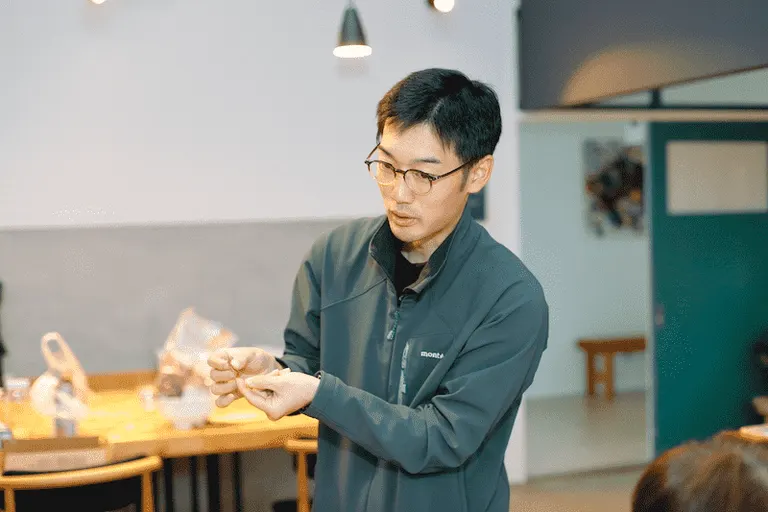
"I wasn't worried about moving, but I did have a vague sense of anxiety about what would happen after my term as a volunteer was over," he recalls.
"I applied for the volunteer position, was accepted, and moved to Urahoro in 2017. In my second year there, I began to get fully involved in tourism. At the time, I was in charge of the "Nohaku" (farm stay) project promoted by the Ministry of Agriculture, Forestry and Fisheries, which involved bird watching, picking rosehips, and guiding tours of Urahoro, including tours of former coal mines."
* A type of stay-based travel in which participants stay overnight in rural areas and enjoy meals and experiences that utilize the rich local resources.
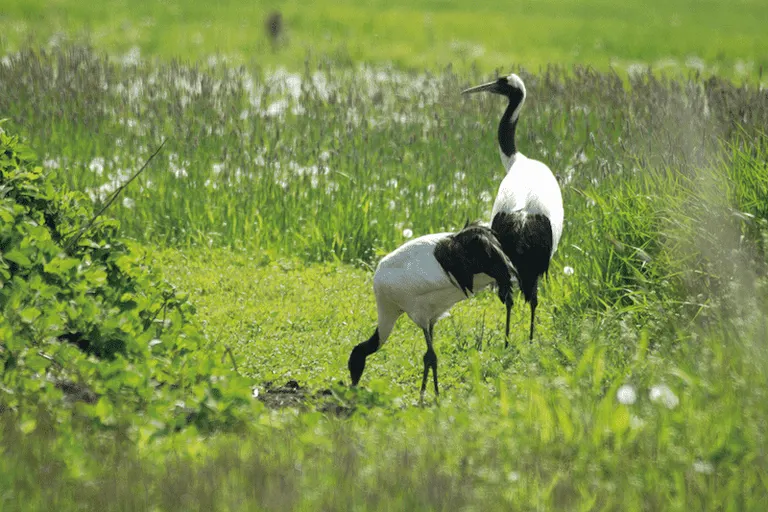
You can see the red-crowned cranes, a national special natural monument.
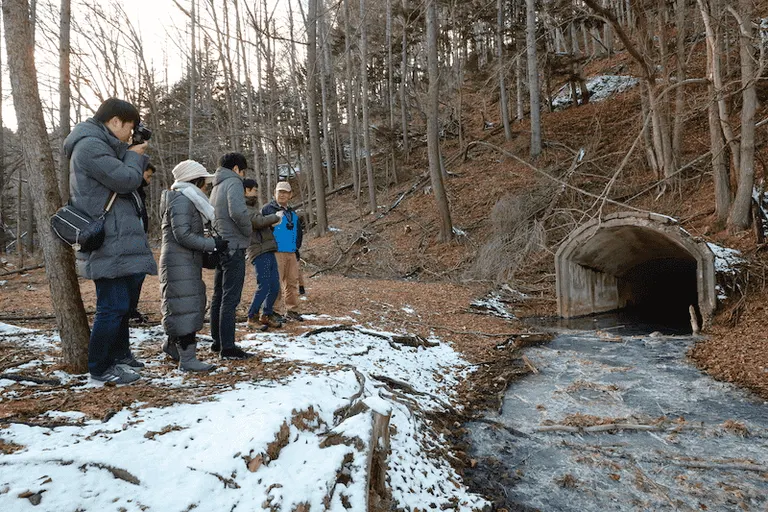
The remains of a coal mine in Urahoro, a former coal mining town
At the same time, he started preparing to start his own business, and became independent in his third year as a volunteer. After starting his own business, in addition to guiding tours, he was also in charge of arranging business trips for town hall staff and school trips for junior high school students. Another big project he completed was opening a guesthouse.
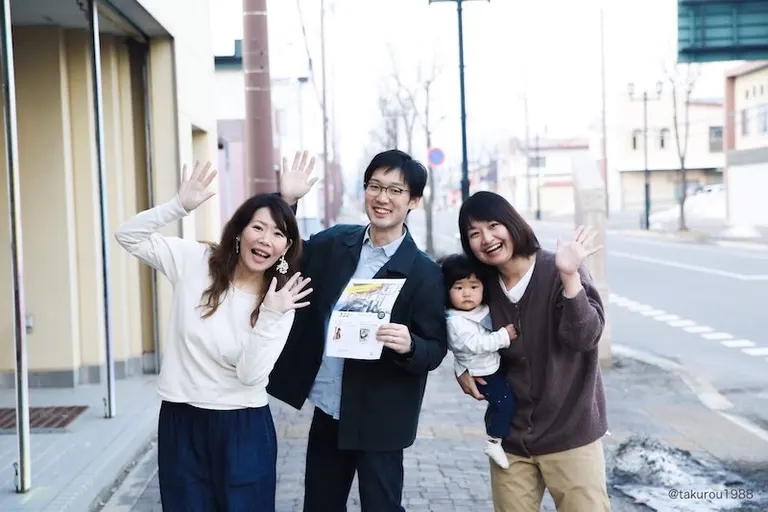
A snapshot from March 2020, before the guesthouse was completed, when we hosted an online event with Nazuka Chihiro (left), who runs the guesthouse "Kokekokko" in Akan Town, on the theme of "A guesthouse that grows with the town."
"When I founded the company, I included an item in the business plan to 'create a guesthouse.' In the guided tours I had done up until now, visitors only stayed in Urahoro for a short period of time. That made it difficult to make it a viable business. Also, there were no lodgings in Urahoro that would attract young travelers, so I thought it would be great to have a guesthouse where such people could stay for a long period of time, as a base." Komatsu bought a 35-year-old building that had been a dormitory for single men and renovated it with his own hands. He has loved DIY since his student days, and even in Urahora he had done simple renovations such as replacing the floors at his own home with the help of people around him, so he enjoyed renovating the guest house with his friends.
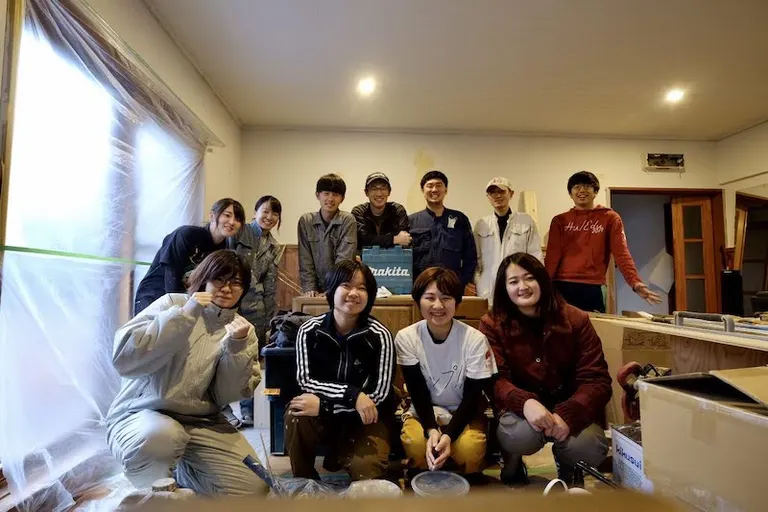
A total of 200 local people, mainly town hall staff and volunteers, helped renovate the guesthouse.
I realized the labor shortage in the primary industries while actually working there.
Thus, Hahaha Hostel was born in July 2021. Although the name makes you feel happy just by hearing it, it was a time when the travel industry was struggling due to the spread of COVID-19, so at first it was unclear how they could attract customers.
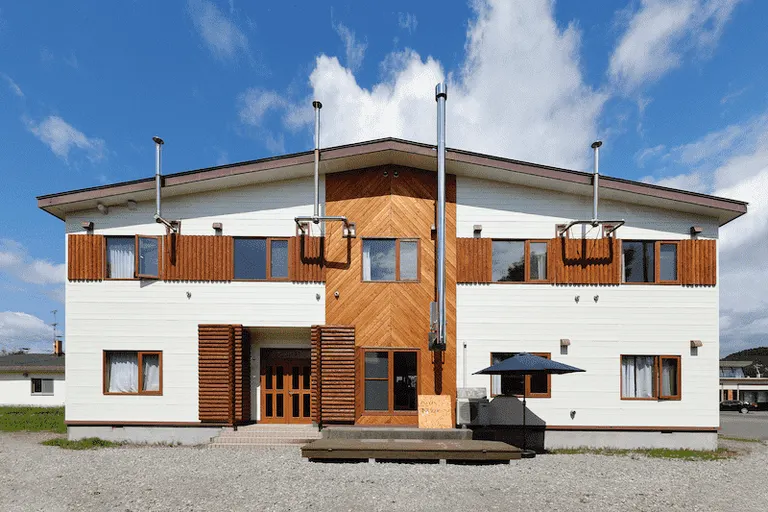
Hahaha Hostel exterior
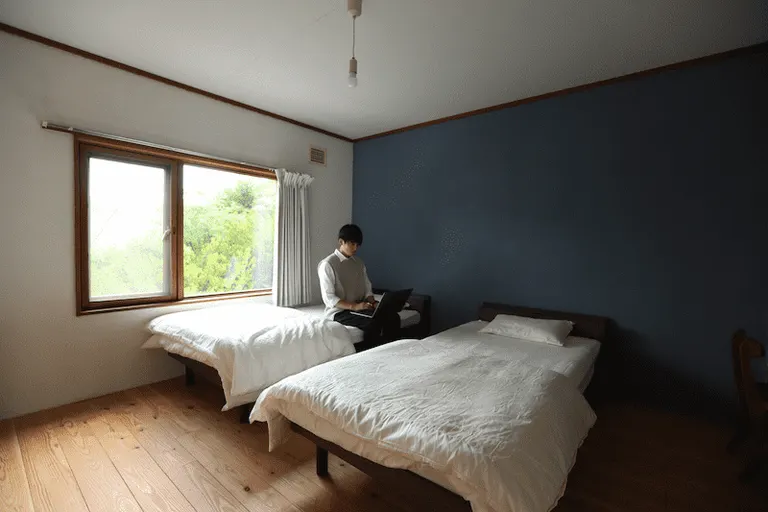
70% of the guests are tourists, but many also use the facility for construction work or business trips. University students who come for fieldwork also stay for long periods.
"When I was preparing to open HaHaHa Hostel, I was working part-time for a dairy farmer I met during my JOCV training, and even after I opened, they continued to help me when there were no customers. When I talked to them on-site, I really felt that they were suffering from a chronic labor shortage."
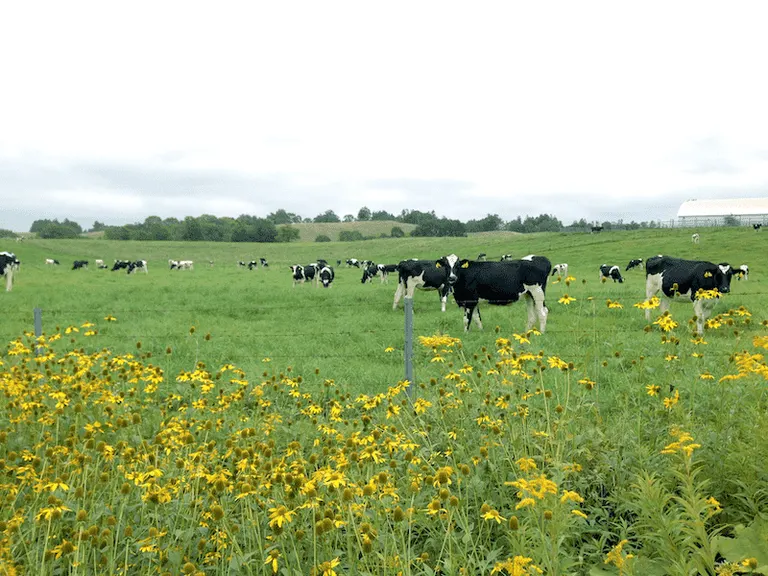
Although it was hard physical labor, Komatsu also enjoyed working on the dairy farm, so one day he asked a dairy farmer, "If there was a child who wanted to stay in Urahora for a month and work part-time, would you be able to accept him?" He got the answer, "Sure." "There are many people working in farm stays in Hokkaido, and some farms receive over 100 applications throughout the year. There are actually quite a few children who want to experience dairy farming in Hokkaido. So we thought that if they could use HaHaHa Hostel as a place to stay for farm stays, it would be beneficial for us as an inn and would also help the farmers, creating a virtuous cycle."
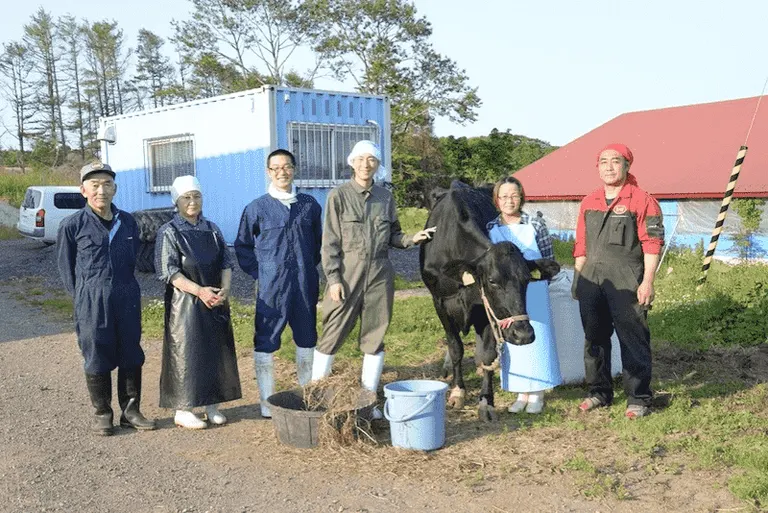
With the dairy farmers who take care of us
Through these experiences, Komatsu gradually began to think about what he could do to increase the number of young people living here. When you move to the countryside, the first things you need are a place to live and a job. And there are many job openings in Urahoro. Just as I was thinking, "In that case, I'll use the inn's website to recruit people who want to do work experience, mainly in primary industries such as dairy farming," I was approached by Urahoro Town about participating in a new project. This was the portal site "Tsutsuuraura," which provides job information for Urahoro Town and also matches people with jobs.
"Tsutsuuraura" is a job search site that also provides information on lifestyle.
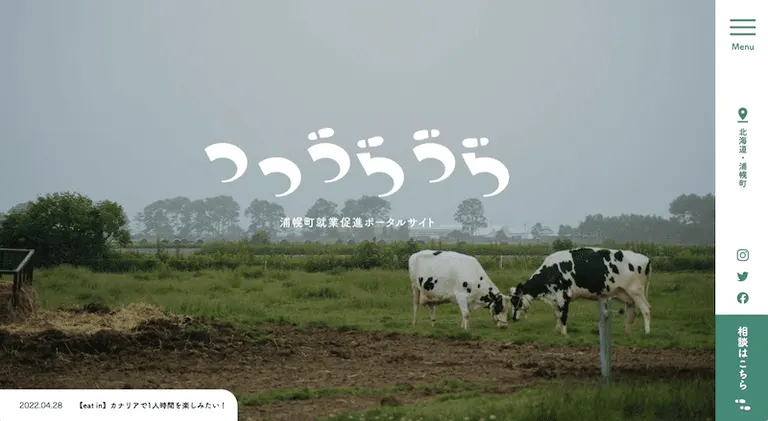
For example, there have been job sites that specialize in specific jobs, such as "just agriculture." However, that information is only seen by people who have decided to work in agriculture. Furthermore, within the framework of "agricultural job listings," it is quite a high hurdle to get people to choose Urahoro, which is located on the left side of Tokachi. Instead, why not let people come to Urahoro casually, experience life here, get to know the people here, and get to know Urahoro while experiencing various work experiences regardless of field? "Tsutsuuraura" was born from an attempt to put such an idea into practice.
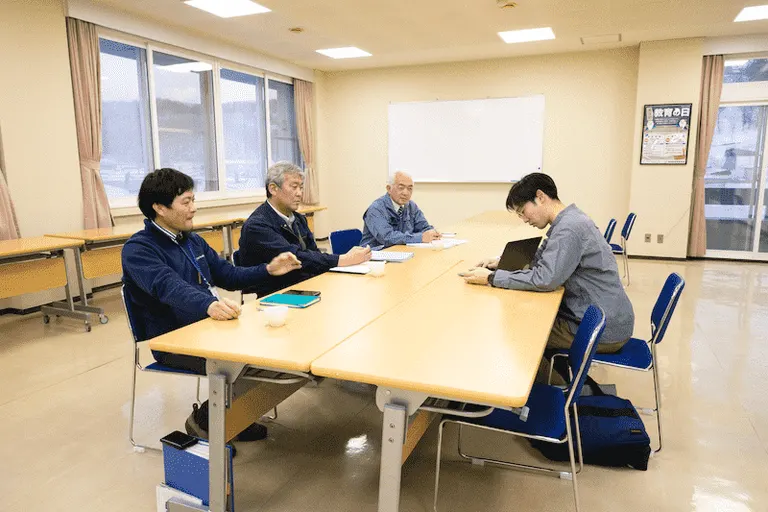
The originator of the idea is Mr. Ogawa (far back) from the Industry Division of the Urahoro Town Hall.
Komatsu's job is to solicit businesses that want to post job information and to coordinate with people who visit Urahoro through "Tsutsuraura". Currently, there are about 20 listings, including job offers and work experience. The site also has a section called "About Urahoro", where you can read authentic travelogues written by people who have actually stayed there about life and work in Urahoro. The site also functions as a portal site, with information updated regularly. "I had a rough idea of how producers would react, but I wasn't sure how commercial and industrial companies would react, so I was a little nervous when I reached out to them. But more than 10 companies agreed to accept us, and they were more flexible than I expected, so I'm relieved."
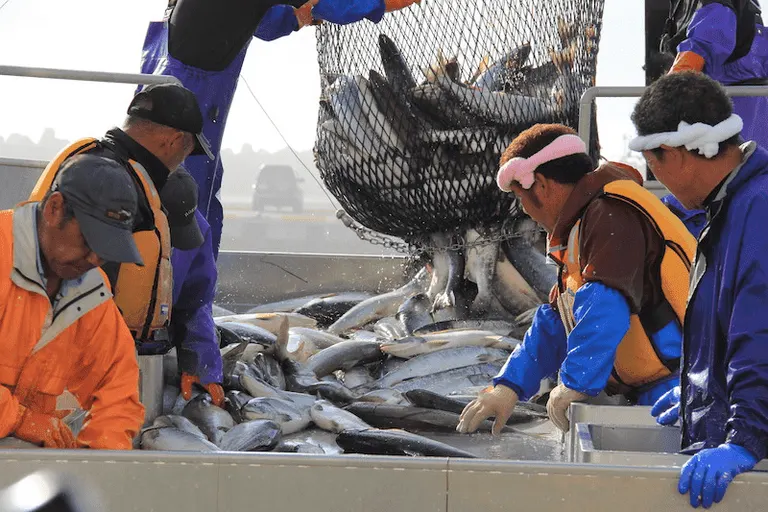
Nanakyou Suisan Co., Ltd., which operates a salmon fixed net fishing business
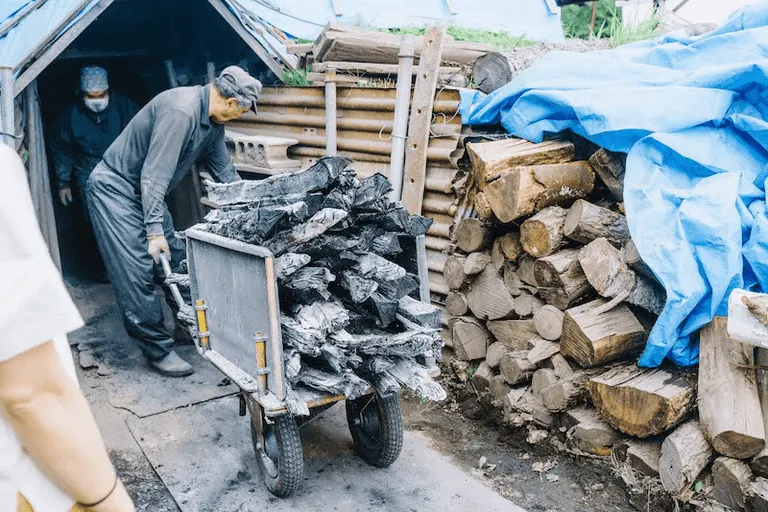
Urahoro Charcoal Co., Ltd. inherited the technology of Urahoro Charcoal, which has a 100-year history, in 2021. They use Mizunara oak from Tokachi.
Urahoro is a town that supports the challenges of young immigrants.
He has been living in Urahoro for five years. How does this town look to Mr. Komatsu, a senior immigrant, now? And what is his reason for continuing to live in Urahoro? "Urahoro is filled with an atmosphere of support for the challenges of the younger generation. If someone comes to you for advice or a request, the first thing they do is listen. Recently, a 20-year-old boy took over a long-established soba noodle restaurant, and when they held a pre-opening in the winter of 2021, members of the Chamber of Commerce came to eat soba about once every two days. I thought that this is what it means to support someone."
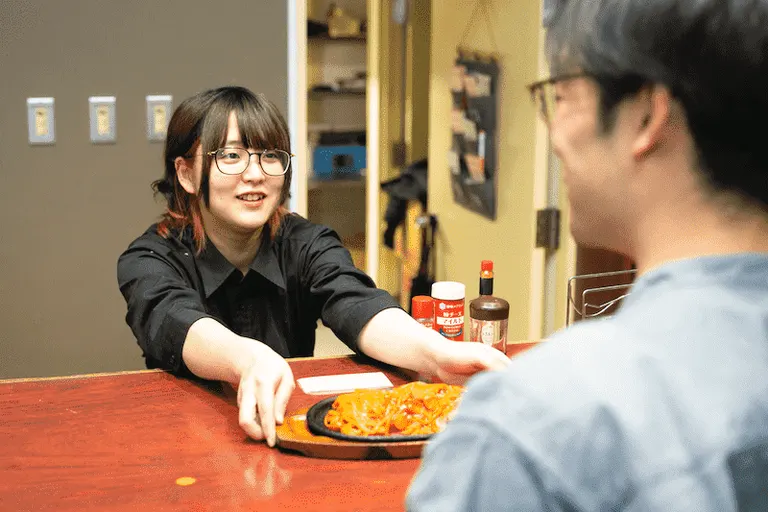
A young immigrant who was connected to Hahaha Hostel through a friend who lives in Urahoro. He got a job at a farm through Komatsu's introduction, and is now working hard at a restaurant in the town.
If you take action, there will be people who will support you. With this in mind, Komatsu says that he naturally began to feel less anxious and scared of failure. Even if the inn business doesn't go well, he can continue working on the dairy farm and look for a new path. Living in a town rich in industry seems to give him that kind of security. "In the future, I'd like to be able to help and provide a place for young people who want to live in Urahoro to do something. I would also like to be able to plan events such as welcome parties for new employees in the area, so that those who move here because of Tsutsuuraura don't end up feeling lonely with no lateral connections or peers." Now, Komatsu is preparing to set up a shared house where young immigrants can interact with each other. As an immigrant himself, he knows the initial anxiety and loneliness of moving here, and he wants to help ease that, even if only a little. He wants to support young people just as the townspeople helped him in the past. That's what he is filled with.
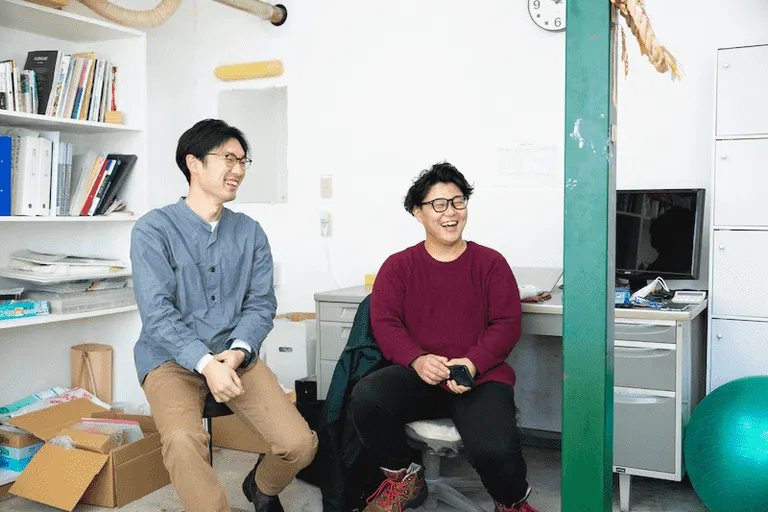
With Mori Kenta (right), a former local revitalization volunteer who moved from Mie Prefecture and is planning and selling "rosa rugosa," a cosmetic product made from the "rugosa rose" flower that blooms in Urahoro.
If you have a long vacation, why not visit Urahoro as a tourist? If you find a job that interests you, we recommend that you give it a try. You may feel the energy of young people and the warmth of the people who have lived here for a long time.
Akira Komatsu
Born in 1994 in Tokushima City, he is the grandson of a pear farmer. Former member of the Urahoro Town Regional Revitalization Volunteer Corps. After graduating from university, he moved to Urahoro Town and worked on the town's tourism business as a regional revitalization volunteer, establishing a corporation in 2019. In 2021, he opened the guesthouse "Hahaha Hostel."
▼See details about "Teru Komatsu" on Domingo Akira Komatsu ▼See details about "HaHaHa Hostel" on Domingo Hahaha Hostel
Writer Profile
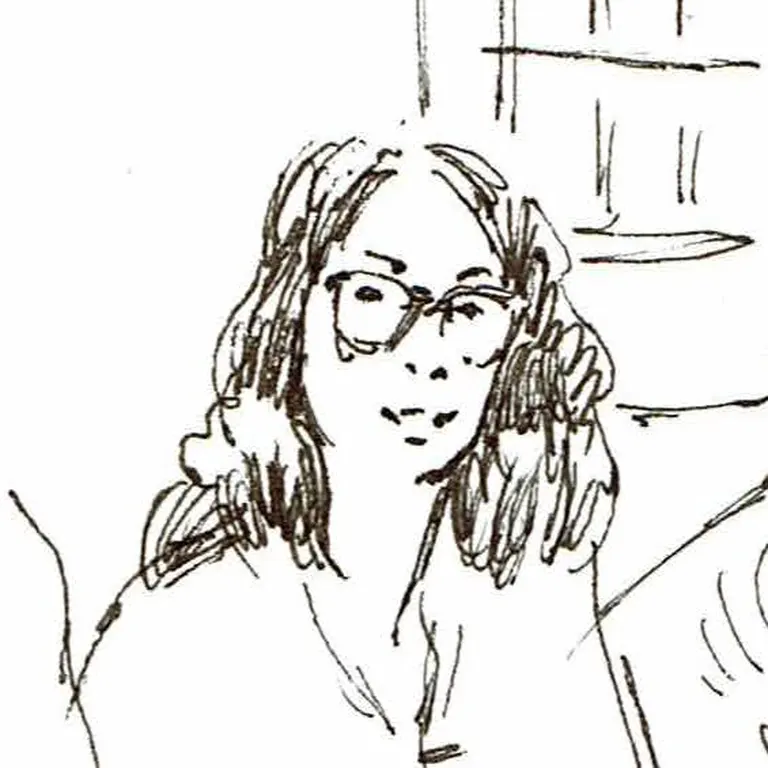 Satoko Nakano
Satoko Nakano
I was born and raised in Tottori Prefecture, the least populous prefecture in Japan. After graduating from high school, I moved to Tokyo and lived there for about 20 years, then moved to Kimobetsu Town with my family in August 2017. I enjoy the clear air and heavy snowfall at the foot of Mt. Yotei, and experience the warmth of the people every day.
You may also want to read this!
Recommended for those who read this article ・Designing the town's entrance. Chihiro Nazuka, who once left Kushiro but returned to the town and continues to enjoy it ・What Keiko Nakamoto from "Kurashi Koto Kina" teaches us [Series "Nakamichi Tomohiro's Shibecha Weather (2)] Topics near this article ・"Rosa rugosa" organic cosmetics featuring rosehip flowers [Hokkaido Cosmetics Review] ・Creating a town where children can have dreams. Building the future using hometown tax donations in Urahoro Town






